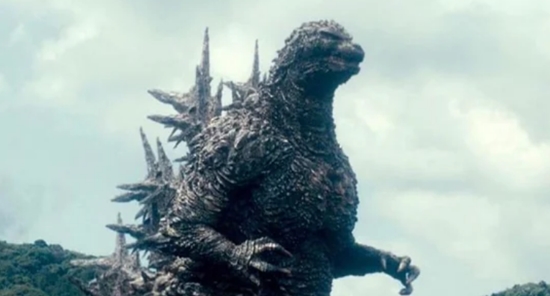
If I were living in a small country right next to a giant country that is always muttering and growling and sending military ships and planes toward the coastline of my small country, always threatening to demote and absorb my small country, would my “main concern” as I prepare to vote be “economic issues”? Or would it be the attitudes of the candidates toward the giant country? Or is this a false alternative?
The Guardian’s Helen Davidson puts it like this: “The campaign has been dominated by the Chinese Communist Party’s threat to annex Taiwan, but surveys have shown it is economic issues that are the main concern of voters, including low wages, housing affordability, energy security and inflation” (“Taiwan braces for ‘big deal’ presidential election as China’s shadow looms,” January 7, 2024).
Uh…
If Godzilla were rising out of the ocean and slowly making his way toward Taiwan, every once in a while breathing flame in its direction, the Taiwanese people would still have to put food on the table and pay the rent or the mortgage. They would still have to work for a living, and everything they want to buy would still be overpriced. Sure, how to deal with Godzilla as he approaches Taiwan and threatens to annihilate it might dominate an election campaign. But how could this looming danger have a higher priority in the minds of voters than “economic issues”? One still must attend to food, clothing, shelter. And maybe Godzilla won’t attack. You never know.
The problem of China and the problem of the rent are two aspects of the same concern for Taiwanese voters, how to survive. So regardless of what the surveys say, the article’s framing suggests a false alternative.
China has been growling and making threats against Taiwan a long, long time, so perhaps—is it possible?—no matter how impatient the Chinese government seems to be getting, some Taiwanese may regard the bigger country’s bullying and threats as little more than background noise, not so much the roaring of a scary monster as the buzzing of a pesky insect. But if “China’s shadow looms” over the election and the campaign has been “dominated by the Chinese Communist party’s threat to annex Taiwan,” it’s for good reason.
Davidson’s article puts the spotlight on Smangus, a “remote Indigenous village, home to about 200 Atayal people” who are getting ready for the January 13 election.
They take it very seriously, running their own polling station since 2008, and discussing candidates with all the residents.
“We normally don’t talk about politics [at the meeting] but the presidential election is a big deal,” says Lahuy Icyeh, a community leader. “The village elders encourage the tribe to choose who is best for Taiwan.”…
For them, the presidential election is about big picture themes, says Yarah Pihu, Smangus’s Presbyterian minister and a community leader. “We want a president with an international perspective and a sense of Taiwanese identity.”
Masay Sulung, a Smangus community leader, said: “I expect 90% of Smangus to vote for Lai Ching-te. We have high expectations for Lai, he has a clear vision for the country.”
“International perspective” and “sense of Taiwanese identity” are abstract and indirect phrases. I’m guessing that the 90% who prefer Lai prefer him with respect to foreign policy because he is more likely to stand up to China than the other two presidential candidates. But with only 200 Atayal people to talk to about this, maybe Davidson was unable to find anyone who would say “Lai will be tougher on China.”
In closing, Davidson writes that in Smangus, “the vote is largely decided. Since at least 2008, the village has voted for the DPP in almost direct inverse proportions to the pro-KMT region it sits in. But the main thing is that they will vote.”
No, Helen Davidson, “that they will vote” is not the main thing. How they will vote is the main thing. Voting is not an end itself, a self-justifying exercise the practical effects of which, including the effects on the prospects for Taiwanese democracy and the survival of Taiwan as a country, are of only secondary importance. Godzilla must be stopped.





